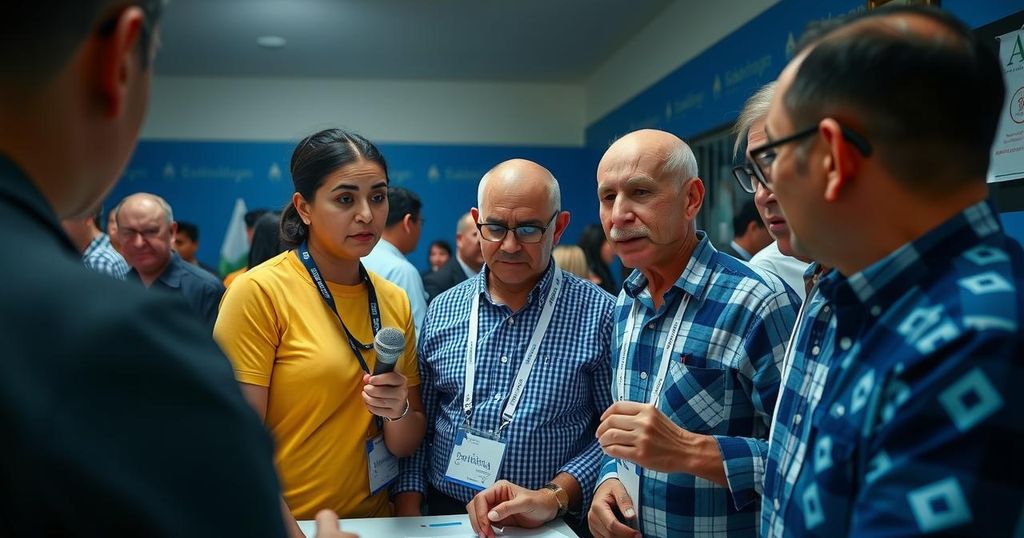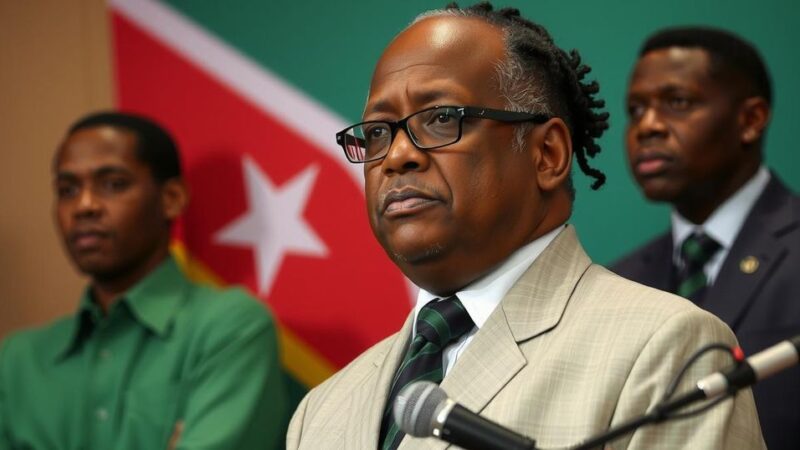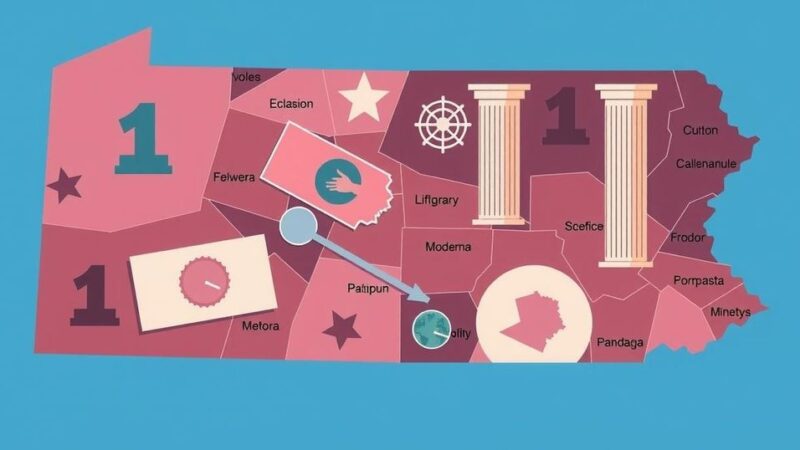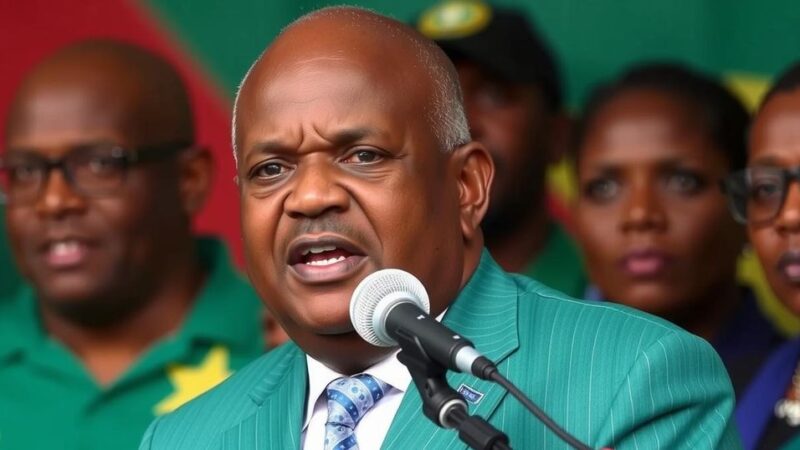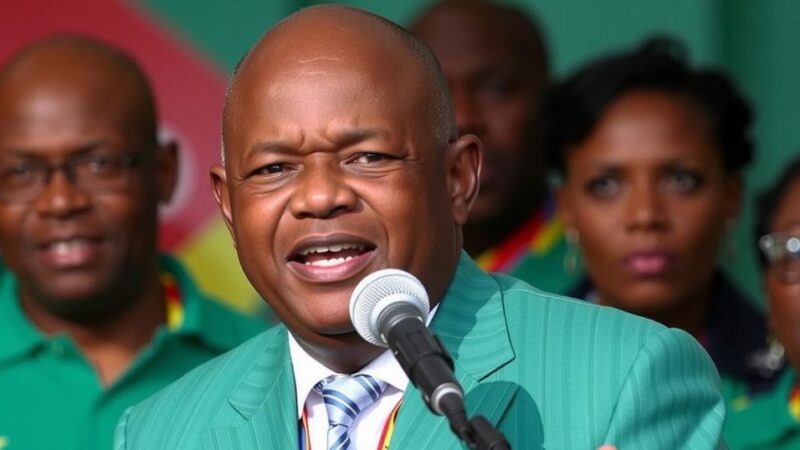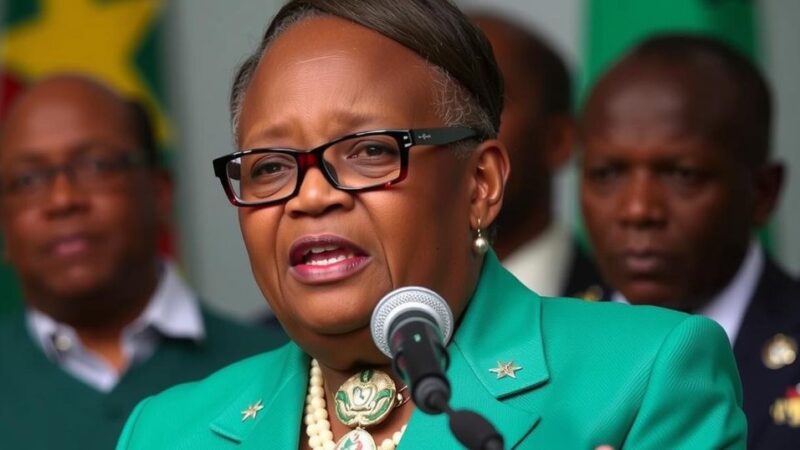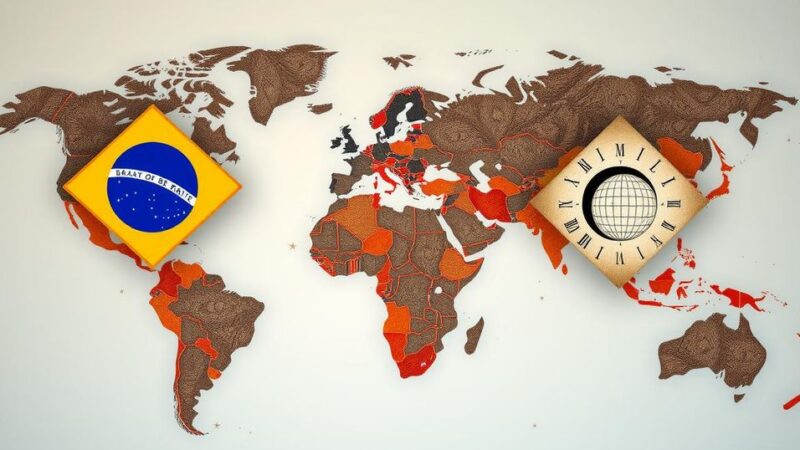Uruguay is conducting its presidential run-off election, with the leftist Frente Amplio and right-wing National Party as main contenders. Voter turnout shows Orsi from the left with 43.9% in the first round, while Delgado from the right garnered 26.8%. The polls suggest a close outcome, with approximately 8% of voters from smaller parties still undecided. This election could reveal if incumbent parties will break the global trend of declining voter support amid economic challenges.
Voting is currently underway in Uruguay’s presidential run-off election, featuring a contest between the leftist coalition led by former President José “Pepe” Mujica and the right-wing National Party, represented by Alvaro Delgado. The leftist Frente Amplio (Broad Front) is seeking a return to power after five years, while the conservative coalition attempts to maintain its influence amid challenges to its record on crime despite a backdrop of rising employment and wages.
Polls indicate a very close race, with recent surveys suggesting that less than 25,000 votes could separate the two major candidates. José Mujica’s Broad Front candidate, Yamandu Orsi, achieved 43.9 percent of the initial round votes, whereas Delgado captured 26.8 percent, benefiting from support of the Colorado Party, which underlines the coalition nature of present-day Uruguayan politics.
Both candidates are vying for the approximately 8 percent of voters who supported minor parties in the previous round and those who abstained. However, neither candidate has introduced new policy proposals that could galvanize this electorate. As the polling day unfolded, challenges facing incumbents globally—such as inflation—added a layer of complexity to the anticipated outcomes in this election.
Uruguay, a nation with a population of approximately 3.4 million, stands at a political crossroads as it holds its presidential run-off election. The electorate is choosing between the leftist agenda proposed by the Broad Front and the right-wing agenda articulated by the National Party. The Broad Front seeks rejuvenation under the experienced leadership of former President José Mujica, while the National Party, backed by the incumbent conservative coalition, aims to capitalize on existing governance situations despite waning support amidst economic concerns. The polarized political environment in many Latin American countries does not fully apply in Uruguay, as significant overlaps exist between conservative and liberal parties. This climate presents a more cordial political landscape than seen elsewhere in the region, which could influence voter sentiments and the electoral outcome.
As Uruguayans engage in this pivotal run-off election, the contest between the leftist and right-wing factions presents significant implications for both the country’s governance and the broader political landscape in Latin America. The proximity of polling results highlights the uncertainty ahead, with many voters feeling disconnected from the candidates’ platforms amidst ongoing economic challenges. The outcome may not only reflect the current political climate but could also indicate a potential shift in public sentiment concerning the ruling parties.
Original Source: www.aljazeera.com

